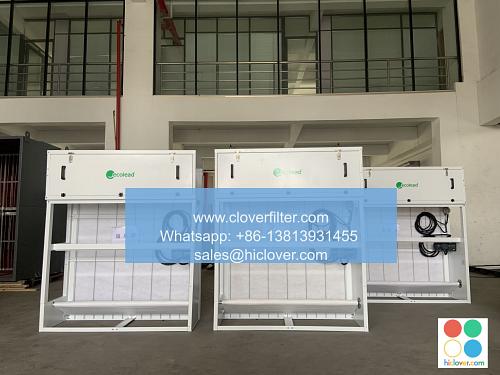The Role of Air Filter Quality Control in Construction Sites

Air filter quality control plays a vital role in maintaining a healthy and safe environment in construction sites. The construction industry is one of the most pollution-prone sectors, with numerous airborne contaminants and pollutants emanating from various sources, including asbestos removal, demolition activities, and heavy machinery operations. Effective air filter quality control measures are essential to minimize the risks associated with indoor air pollution, respiratory problems, and occupational health hazards.
Importance of Air Filter Quality Control
Air filter quality control is crucial in construction sites to ensure that the air is free from harmful pollutants, particulate matter, and gaseous contaminants. The use of high-quality air filters can help prevent airborne diseases, allergic reactions, and respiratory infections among construction workers. Moreover, air filter quality control measures can also help reduce the risks of equipment damage, system downtime, and energy consumption by minimizing the accumulation of dust, moisture, and other contaminants in heating, ventilation, and air conditioning (HVAC) systems.
Application Areas of Air Filter Quality Control
Air filter quality control measures are applicable in various areas of construction sites, including:
* Industrial ventilation systems: Air filters are used to remove harmful gases, vapors, and particulate matter from the air in industrial ventilation systems.
* Construction equipment: Air filters are used to prevent dust, moisture, and other contaminants from entering construction equipment, such as cranes, bull dozers, and excavators.
* Personal protective equipment (PPE): Air filters are used in PPE, such as respirators and mask, to protect construction workers from harmful airborne contaminants.
* Building management systems (BMS): Air filters are used in BMS to monitor and control indoor air quality, temperature, and humidity levels in construction sites.
Key Considerations for Air Filter Quality Control
When implementing air filter quality control measures in construction sites, several key considerations must be taken into account, including:
* Filter efficiency: The ability of air filters to capture particulate matter and gaseous contaminants is crucial in maintaining good indoor air quality.
* Filter maintenance: Regular maintenance of air filters is essential to ensure that they function efficiently and effectively.
* Filter replacement: Air filters must be replaced regularly to prevent equipment damage and system downtime.
* Compliance with regulations: Construction sites must comply with occupational health and safety regulations and environmental regulations related to air filter quality control.
Conclusion
In conclusion, air filter quality control plays a vital role in maintaining a healthy and safe environment in construction sites. By implementing effective air filter quality control measures, construction sites can minimize the risks associated with indoor air pollution, respiratory problems, and occupational health hazards. It is essential to consider key factors, such as filter efficiency, filter maintenance, filter replacement, and compliance with regulations, when implementing air filter quality control measures in construction sites. By doing so, construction sites can ensure a safe, healthy, and productive work environment for construction workers. You haven’t asked a question or provided any context. Please provide more information or clarify what you would like to know, and I’ll do my best to assist you. What’s on your mind?

